Kuo Hui-chun (郭慧君) is used to seeing people cheerfully plan their own funerals.
But even she was impressed by the enthusiasm and openness of the attendees at last Sunday’s “Death Cafe” session, especially with death still being a mostly taboo topic in Taiwanese society.
“The participants had many unconventional ideas, such as having the funeral by the ocean, in their home or at a place where they could then be buried together with their beloved pets,” she tells the Taipei Times. “They talked about what they would wear, which portrait they wanted to use... It was fantastic. Everyone had a great time.”
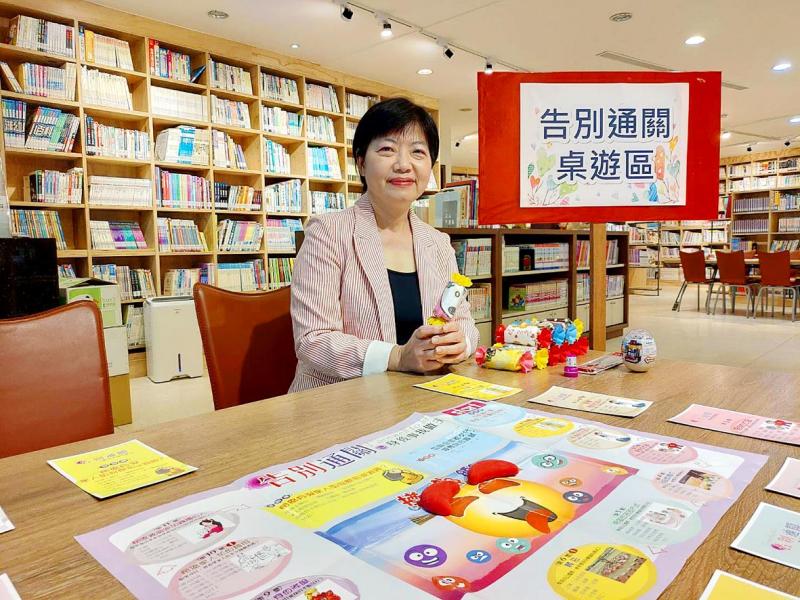
Photo: Liu Hsiao-hsin, Taipei Times
Kuo has led more than 700 Death Cafe events since 2014, incorporating board games she designed into the concept that originated in the UK. Last Sunday was the second of three sessions leading up to the Museum of World Religions’ “Bright as Night, Dark as Day, A Walk with the Death” (生死晝夜:於死亡中前行) exhibition, which opens today to mark the longest day of the year.
Each Death Cafe event has a different theme. The first one focused on writing a will, and the final event tomorrow will address the death of a pet. Kuo says that the sessions have become especially popular in the past two years as the COVID-19 pandemic and aging society have heightened the everyday presence of death.
Her goal of helping people face the inevitable in a positive and meaningful way aligns with the exhibition’s statement: “Our instinctual fear of death causes us to ignore the fact that it surrounds us everyday; in fact we’re constantly running away from it. But death and life go hand in hand, and if we want to discuss life, we must talk about death.”
AVOIDING DEATH
Many cultures avoid talking about death, but this avoidance is especially pronounced in Taiwan and other Han Chinese societies, Kuo says, to the point where family members often withhold terminal illness diagnoses from a loved one.
“We refuse to talk about it in the family, in school or in society. The fear and unwillingness to discuss death results in us losing the ability to do so. And that leads to us losing the ability to handle and face it,” she says.
Her inquiries as a child about certain taboos, such as looking away when passing a funeral home, were met with admonishment, and this continued even as an adult as her family discouraged her aging father from bringing up his funeral arrangements. You’re still healthy, they insisted.
“So I talked to him, and it was a great conversation,” she says. “There wasn’t anything negative about it. It was a very deep, spiritual exchange”
He died three years later. Kuo started thinking more about life-and-death education, and the virtual lack of it in Taiwan. She eventually enrolled in the Buddhist Nanhua University’s (南華大學) Life-and-Death Studies graduate program.
“Such programs are very rare, and I noticed that only religion-affiliated schools offered them,” she says. “But death isn’t something that should only be discussed through religion. Everyone has grandparents. We will all die one day. I wanted to take the concepts I learned and transform them into something fun to help the average person overcome their fears.”
After graduating, Kuo launched Taiwan’s edition of Death Cafe, where people got together to eat, drink tea and talk about death. At first, organizations who invited her were wary of upsetting the attendees, but soon she was speaking at elderly care centers and large corporations. The addition of board games in 2016 furthered the events’ popularity.
‘FUNERAL AUTONOMY’
One of Kuo’s more memorable moments was when a young man attended a funeral-planning session with his parents. It turns out, he had terminal cancer and they were planning his funeral.
“I was so moved,” she says. “It’s really not easy for Taiwanese parents to do this. Most would never even think of attending, because they don’t want to accept the fact that their son will die.”
As the author of the Ministry of Interior’s book, Modern Funeral Practices, she also hopes to overturn sexist or overly rigid traditions and promote “funeral autonomy.”
“Out of all the new perspectives toward life and death, the slowest to change is regarding funerals,” she says. “People don’t dare mess with tradition.”
Situations are still common where only sons can lead the ritual, where women are banned from attending their husband’s procession or where deceased unmarried women are not included in the family altar.
“Aside from equality, we also must learn to respect the wishes of the dying,” she adds.
But most importantly, Kuo hopes to bring life-and-death education into the school system, starting from preschool.
“Many parents might question why a child has to learn about [death],” she says. “[It’s because] they will eventually encounter it.”
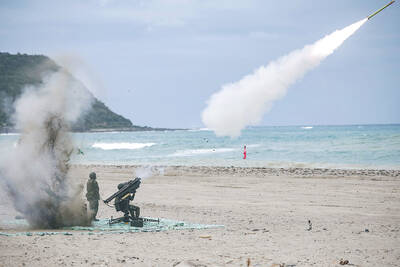
In late October of 1873 the government of Japan decided against sending a military expedition to Korea to force that nation to open trade relations. Across the government supporters of the expedition resigned immediately. The spectacle of revolt by disaffected samurai began to loom over Japanese politics. In January of 1874 disaffected samurai attacked a senior minister in Tokyo. A month later, a group of pro-Korea expedition and anti-foreign elements from Saga prefecture in Kyushu revolted, driven in part by high food prices stemming from poor harvests. Their leader, according to Edward Drea’s classic Japan’s Imperial Army, was a samurai
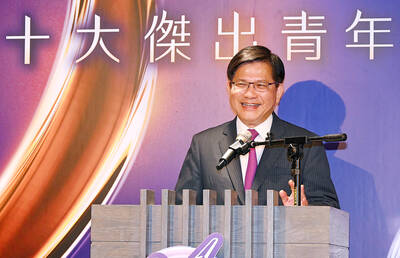
The following three paragraphs are just some of what the local Chinese-language press is reporting on breathlessly and following every twist and turn with the eagerness of a soap opera fan. For many English-language readers, it probably comes across as incomprehensibly opaque, so bear with me briefly dear reader: To the surprise of many, former pop singer and Democratic Progressive Party (DPP) ex-lawmaker Yu Tien (余天) of the Taiwan Normal Country Promotion Association (TNCPA) at the last minute dropped out of the running for committee chair of the DPP’s New Taipei City chapter, paving the way for DPP legislator Su
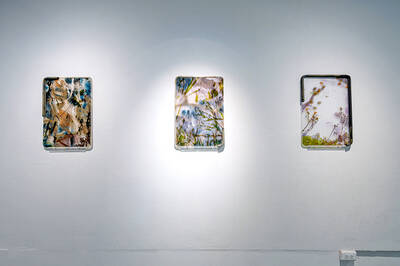
Located down a sideroad in old Wanhua District (萬華區), Waley Art (水谷藝術) has an established reputation for curating some of the more provocative indie art exhibitions in Taipei. And this month is no exception. Beyond the innocuous facade of a shophouse, the full three stories of the gallery space (including the basement) have been taken over by photographs, installation videos and abstract images courtesy of two creatives who hail from the opposite ends of the earth, Taiwan’s Hsu Yi-ting (許懿婷) and Germany’s Benjamin Janzen. “In 2019, I had an art residency in Europe,” Hsu says. “I met Benjamin in the lobby
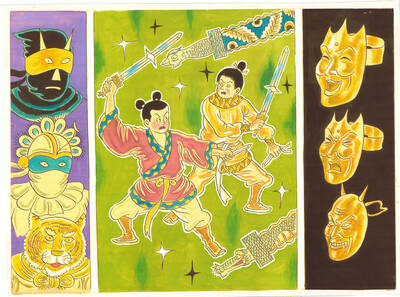
April 22 to April 28 The true identity of the mastermind behind the Demon Gang (魔鬼黨) was undoubtedly on the minds of countless schoolchildren in late 1958. In the days leading up to the big reveal, more than 10,000 guesses were sent to Ta Hwa Publishing Co (大華文化社) for a chance to win prizes. The smash success of the comic series Great Battle Against the Demon Gang (大戰魔鬼黨) came as a surprise to author Yeh Hung-chia (葉宏甲), who had long given up on his dream after being jailed for 10 months in 1947 over political cartoons. Protagonist